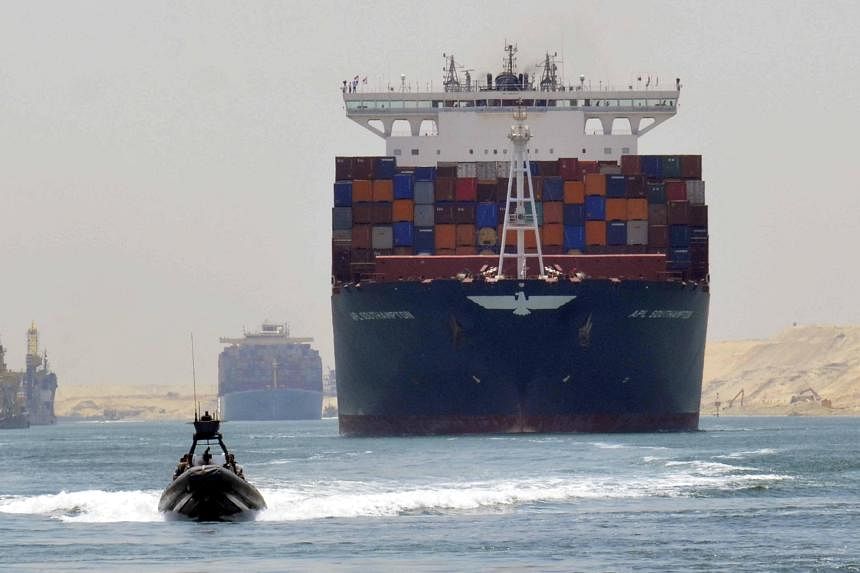NEW YORK - The volume of commercial traffic passing through the Suez Canal has fallen more than 40 per cent in the last two months after attacks by Yemen’s Houthi rebels, according to the United Nations, raising concerns for global trade.
The Iran-backed Houthis say they are targeting what they consider Israeli-linked commercial and military shipping in the region in solidarity with Palestinians in Gaza, pushing some cargo carriers to take longer and more expensive routes to avoid attacks.
“We are very concerned that the attacks on Red Sea shipping are adding tensions to global trade, exacerbating (existing) trade disruptions due to geopolitics and climate change,” UN Conference on Trade and Development (UNCTAD) head Jan Hoffman told reporters on Jan 25.
According to the UNCTAD, ships diverting from the Red Sea – sailing instead around South Africa’s Cape of Good Hope – has led to a 42 per cent drop in transit through the Suez Canal in the last two months.
The Suez Canal, in Egypt, connects the Mediterranean Sea with the Red Sea.
More than 80 per cent of the volume of international goods trade is done via sea, Mr Hoffman said.
“Maritime transport is really the lifeline of global trade,” he said.
More than 20 per cent of the world’s container trade goes through the Suez Canal, and the number of weekly container ship transits via the Suez has fallen by 67 per cent year-on-year, according to the UNCTAD.
“Given that it’s above all the larger container ships that divert from the Suez Canal, the decline in container carrying capacity is even bigger,” Mr Hoffman said.
Tanker traffic has dropped 18 per cent, the transit of bulk cargo ships carrying grain and coal is down 6 per cent and gas transport is at a standstill.
Overall, between 12 per cent and 15 per cent of world trade – 20,000 ships a year – passes through the Red Sea, providing a link between Europe and Asia.
The situation is made even more dire as other global maritime trade routes also face disruption, with transit through the Black Sea severely restricted since Russia’s invasion of Ukraine two years ago, sending global food prices soaring.
A drought in Central America has led to a drop in water levels in the Panama Canal, significantly reducing the amount of traffic able to cross the essential route.
“Prolonged disruptions in major trade routes would disrupt global supply chains, leading to delayed deliveries of goods, increased costs and potential inflation,” the UNCTAD warned. AFP

